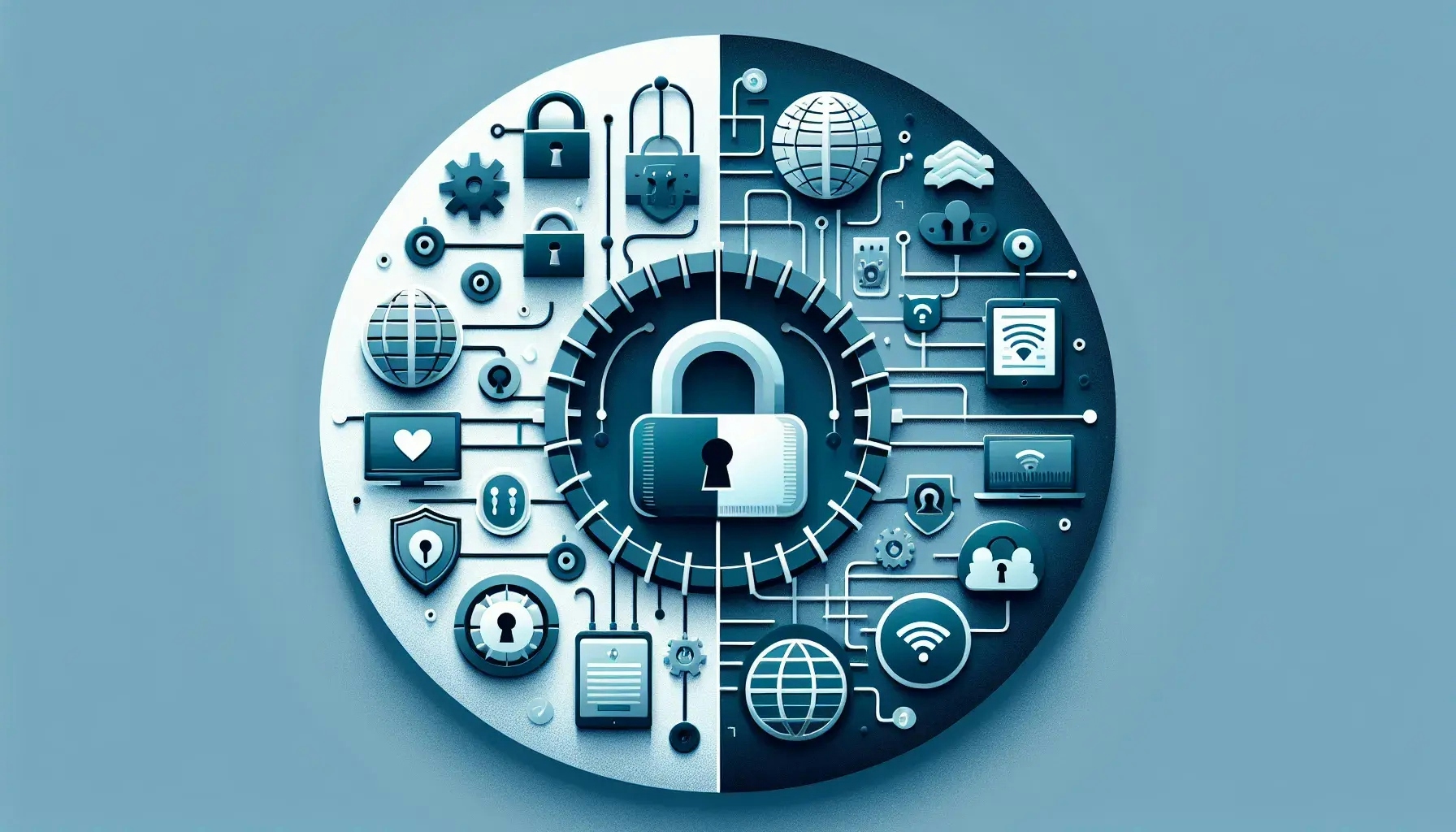In the digital age, privacy and security are paramount. One tool that has gained popularity in this regard is the Virtual Private Network, or VPN. This blog post aims to provide an in-depth look at the advantages and disadvantages of using VPNs. We'll delve into what VPNs are, how they work, and the various pros and cons associated with their use.
Understanding VPNs
A Virtual Private Network, or VPN, is a service that allows you to connect to the internet via an encrypted tunnel. This tunnel ensures that all data passing through it remains private and secure, away from the prying eyes of hackers, governments, and corporations. VPNs have become increasingly popular as more people become aware of the importance of online privacy.
However, understanding how VPNs work can be a bit complex. When you connect to a VPN, your internet traffic is routed through a secure server located somewhere else in the world. This process not only encrypts your data but also masks your IP address, making it appear as though you're browsing from a different location.
This functionality has several implications, both positive and negative, which we will explore in the following sections.
The Advantages of VPNs
One of the most significant advantages of using a VPN is enhanced privacy and security. When you connect to a VPN, your data is encrypted, making it nearly impossible for anyone to intercept and read it. This feature is especially useful when using public Wi-Fi networks, which are often unsecured and can be a hotbed for cybercriminals.
Another advantage of VPNs is their ability to bypass geo-restrictions. Many online services, such as streaming platforms, restrict their content based on the user's location. By masking your IP address, a VPN can make it appear as though you're browsing from a different country, allowing you to access content that would otherwise be unavailable.
VPNs can also help prevent bandwidth throttling. Some internet service providers (ISPs) slow down your internet speed when you engage in data-heavy activities like streaming or gaming. Since a VPN hides your online activity from your ISP, it can help ensure you always have the fastest possible connection.
The Disadvantages of VPNs
Despite their numerous benefits, VPNs also have their drawbacks. One of the most significant is the potential for decreased internet speed. Because your data has to travel further when connected to a VPN, and because it takes time to encrypt and decrypt your data, you may experience slower internet speeds when using a VPN.
Another disadvantage is that not all VPNs are trustworthy. Some VPN providers may log your internet activity and sell it to third parties. Therefore, it's crucial to do your research and choose a reputable VPN provider.
Additionally, while VPNs can bypass geo-restrictions, they can also lead to you being banned from certain services. Some companies, like Netflix, are cracking down on VPN usage and may block you if they detect you're using one.
Choosing the Right VPN
Given the pros and cons of VPNs, it's essential to choose the right one for your needs. When selecting a VPN, consider factors such as its security features, speed, the number of servers it has, and whether it keeps logs of your activity.
Also, consider the VPN's price. While there are free VPNs available, they often have limitations and may not be as secure as paid options. Remember, if you're not paying for the product, you are the product.
The Future of VPNs
The future of VPNs looks promising. As concerns over online privacy and security continue to grow, it's likely that more people will turn to VPNs to protect their online activity. However, as VPN usage increases, so too will the efforts of governments and corporations to crack down on them.
Despite this, VPN technology continues to evolve, with new features and improvements being introduced regularly. This ongoing development, coupled with increasing public awareness of online privacy issues, suggests that VPNs will continue to play a crucial role in internet usage in the future.
Final Thoughts on VPNs
VPNs are a powerful tool for protecting your online privacy and security. They offer numerous benefits, including enhanced security, the ability to bypass geo-restrictions, and prevention of bandwidth throttling. However, they also have their drawbacks, such as potential speed decreases and the risk of being banned from certain services.
When choosing a VPN, it's essential to do your research and select a reputable provider. While the future of VPNs looks promising, it's also likely that challenges will arise as their usage becomes more widespread.
Wrapping Up the VPN Discussion
In conclusion, VPNs offer a valuable solution to many of the privacy and security issues that come with internet usage. However, they are not without their drawbacks, and it's essential to understand these before deciding to use a VPN. By weighing the pros and cons, you can make an informed decision about whether a VPN is the right tool for your online needs.

